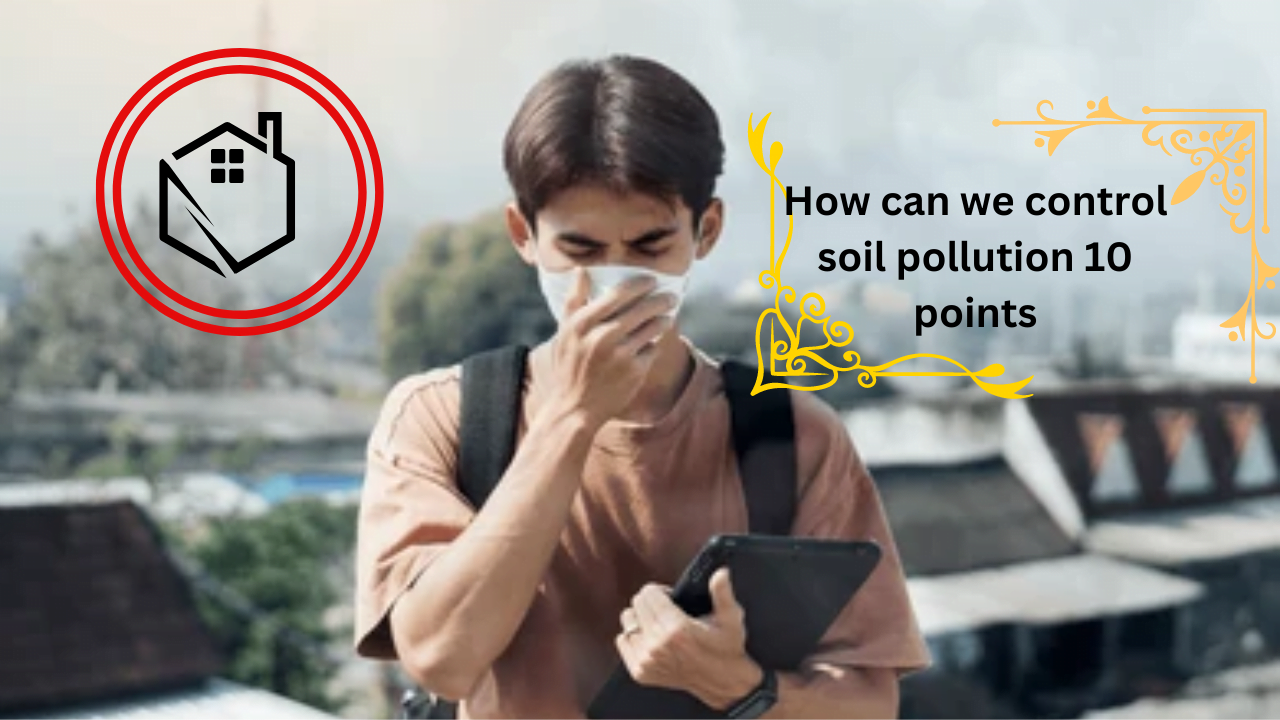The foundation of life on Earth, faces a silent threat: pollution. Contaminated by chemicals,
waste, and other harmful substances, this vital resource loses its fertility, biodiversity, and ability to support healthy ecosystems. Controlling soil pollution demands a multi-pronged approach, requiring individual action, community initiatives, and systemic changes.
Beyond the Dirt: Unveiling the Silent Threat of Soil Pollution and 10 Ways to Fight Back
Here are 10 key strategies to reclaim our soil and secure a sustainable future: 1. Embrace Organic Farming: Ditch the toxic cocktail of synthetic fertilizers and pesticides. Opt for organic alternatives like compost, manure, and biofertilizers that nourish the soil naturally. This fosters healthy microbial communities, improves water retention, and reduces contamination risks.
Practice Crop Rotation: The continuous farming of the same crop depletes essential nutrients and attracts specific pests. Implement strategic crop rotation plans to diversify soil nutrients, suppress disease, and promote beneficial insect populations.
Seeds of Change: Cultivating a Sustainable Future by Controlling Soil Pollution
Cultivate Cover Crops: During fallow periods, sow cover crops like clover, ryegrass, or legumes. These “green blankets” protect the soil from erosion, suppress weeds, and fix nitrogen, enriching the soil for future plantings.
Compost Your Food Scraps: Kitchen waste harbors valuable nutrients. Instead of sending it to landfills, compost it! This nutrient-rich organic matter improves soil structure, aeration, and moisture retention, fostering healthier plants and reducing dependence on chemical fertilizers.
Reduce, Reuse, Recycle: Our consumption habits directly impact soil health. Reduce your reliance on single-use plastics and packaging, opt for reusable alternatives, and diligently recycle. This minimizes waste generation and prevents harmful materials from leaching into the soil.
The Silent Threat Beneath Our Feet: Exposing Soil Pollution and 10 Ways to Reclaim Our Ground
Support Sustainable Businesses: Choose products from companies committed to sustainable practices. Look for certifications like organic, fair trade, and recycled content. By voting with your wallet, you incentivize responsible production and waste management, ultimately protecting soil health.
Advocate for Legislation: Strong policies are crucial for controlling soil pollution. Support initiatives that promote responsible waste disposal, regulate industrial emissions, and encourage sustainable agricultural practices. Contact your local representatives and raise awareness about the importance of soil health.
Dirt Matters: Unveiling the Hidden Crisis of Soil Pollution and How We Can Heal the Earth
Educate Yourself and Others: Knowledge is power! Take the time to understand the causes and consequences of soil pollution.Organize educational workshops or events to raise awareness and inspire collective action.
Support Community Gardens and Urban Farming: Promote urban farming initiatives and community gardens. These projects not only provide fresh, local food but also revitalize underutilized land, educate residents about healthy soil practices, and foster a sense of community responsibility for the environment.
Combating Soil Pollution: 10 Key Strategies for a Healthier Planet
Invest in Research and Development: Encourage research into bioremediation technologies, advanced composting methods, and plant species resilient to pollutants. Supporting scientific advancements can unlock innovative solutions for cleaning up contaminated soil and preventing future degradation.
Controlling soil pollution demands a collaborative effort. By embracing sustainable practices, advocating for change, and supporting research and education, we can protect this vital resource for generations to come. Remember, even small actions taken by individuals can create a ripple effect, paving the way for a healthier planet and a more secure future for all.
Additional Points:Support sustainable forestry practices: Deforestation and unsustainable logging practices contribute to soil erosion and nutrient loss. Support organizations and initiatives that promote responsible forest management and reforestation efforts. Minimize your use of herbicides and pesticides: These chemicals can harm beneficial soil organisms and contribute to long-term contamination.
Explore natural pest control methods and prioritize preventative measures to minimize reliance on harmful chemicals. Be mindful of household waste disposal: Dispose of hazardous materials like batteries, paint, and cleaning products responsibly at designated collection points. Never dump them down the drain or on the ground, as they can leach harmful chemicals into the soil.
Stay informed about local soil pollution issues: Engage with local environmental organizations and community groups to stay updated on relevant issues and potential solutions. Participate in public hearings and decision-making processes to advocate for policies that protect soil health. By working together, we can harness the power of collective action to combat soil pollution and ensure a thriving future for ourselves and the planet. Let’s start today, one conscious choice at a time.
